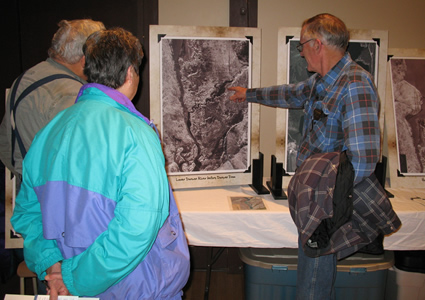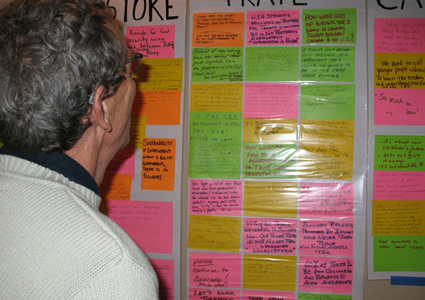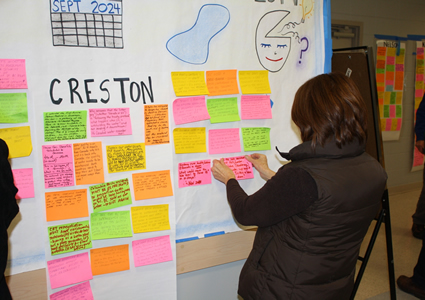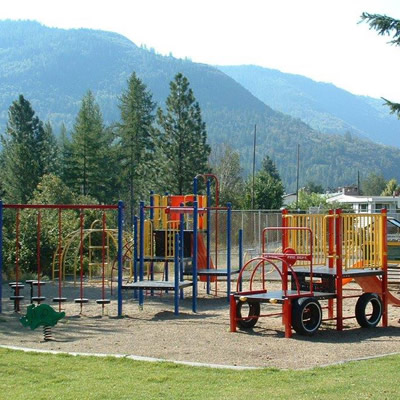Basin residents learn about Columbia River Treaty
More than 1,600 Basin residents took part in Columbia River Treaty (CRT) information sessions in 2011 and 2012, and their input is helping shape the next round that will get underway this spring.
From June 2011 to February 2012, Columbia Basin Trust (CBT), in partnership with the CRT Local Governments Committee (LG Committee), hosted public information sessions in 14 communities, plus three online sessions. In addition, three information sessions were held for First Nations and a conference for young leaders has taken place.
In general, Basin residents said they want more information on several topics, including: the benefits and negative impacts of the current CRT; issues related to compensation; the feasibility of bringing salmon back to the upper Columbia River; climate change and how it may influence the CRT in the future; and scenarios for the future of the CRT. They also want to learn more about how the current CRT operates, including flood control and downstream power benefits, as well as roles and responsibilities of key players, including the federal and provincial governments.
Documents summarizing the 2011 sessions are online at www.cbt.org/crt. Summaries from 2012 will be available soon. In addition, videos that capture ideas from residents are online and are a great way to share ideas across the Columbia Basin. CBT has also posted a series of pre- and post-dam images, along with maps showing sections of the Columbia River system in Canada. These new items are in addition to existing videos, fact sheets, virtual flyovers, a library and other resources online at www.cbt.org/crt.
"The Local Governments' Committee, with support from CBT, is committed to going back to Basin residents this spring with answers to their questions, and to providing opportunities for residents to continue to build their knowledge and understanding of the CRT," said Deb Kozak, chair of the LG Committee and councillor of the City of Nelson.
Consultation on the CRT is a provincial responsibility and the province has committed to consulting with residents. CBT will continue to work with local governments to educate residents.
"CBT's primary role with respect to the CRT is to act as an information resource for Basin residents and local governments," said Neil Muth, CBT president and CEO, adding that CBT does not make decisions with respect to the CRT. "We are pleased to work in partnership with the Local Governments Committee and support their efforts to ensure this region and its residents are actively engaged in CRT-related issues."
The CRT is an international agreement between Canada and the United States to co-ordinate flood control and optimize hydroelectric power generation on both sides of the border. Under the 1964 treaty, three dams were constructed in Canada, including Duncan, Hugh Keenleyside and Mica. A fourth dam, Libby, was constructed in Montana. Its reservoir, Koocanusa, extends 67 kilometres into Canada.
The CRT has no official expiry date, but has a minimum length of 60 years, which is met in September 2024. Either Canada or the United States can terminate many of the provisions of the agreement effective any time after September 2024, provided written notice is filed at least 10 years in advance (2014). While no decision has been made by either Canada or the United States on the future of the current treaty, given the importance of the issues, and the approaching date of 2014, both countries are now conducting studies and exploring future options for the CRT.
Details about the spring information sessions will be available soon. In the meantime, CBT will continue to post new information online at www.cbt.org/crt, and Basin residents are encouraged to visit the CRT web pages and subscribe to CRT email updates.








Comments